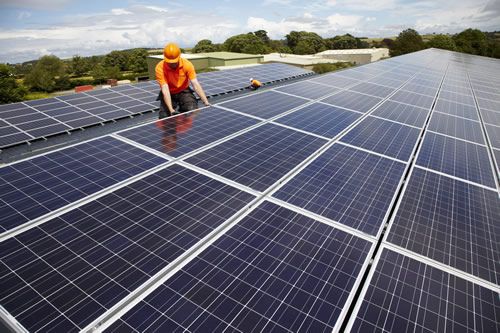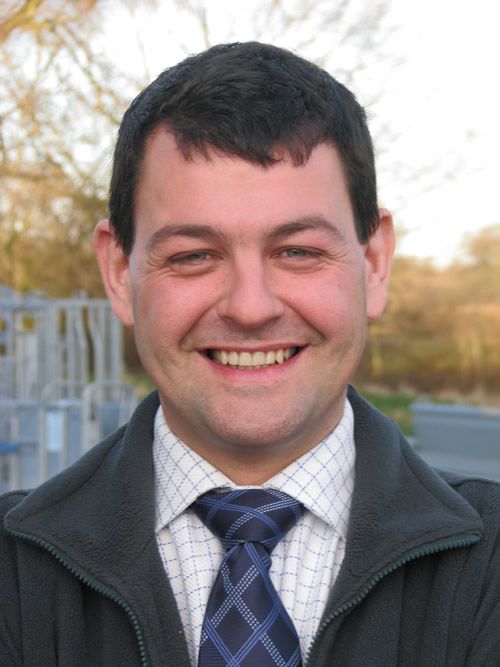
North Yorkshire company, Duncan Renewables, has completed one of the largest roof-mounted solar photovoltaic (PV) projects in the UK over the summer, after installing solar panels at WE Jameson’s animal feeds in Masham.
Solar PV installations harness energy from the sun to produce electricity, explains Duncan Renewables spokesman, Mark Duncan, whose company is based in Tockwith near York. Their popularity has grown, following the introduction of the Government’s ’Feed in Tariff’ (FiT) scheme. It entitles owners of domestic and commercial PV systems to claim money back for every kilowatt hour (kWh) of electricity generated. Feed-in tariffs are ’generation tariffs,’ offered for the production of electricity, with additional savings on energy bills from using the power. If the equipment owner is unable to use the electricity, it is exported to the National Grid, for which an additional ’export tariff’ payment is received. The revenue is inflation-linked and government-guaranteed for 25 years.
Solar PV systems can be retro-fitted on to existing roof structures, or incorporated into new build projects, says Mr Duncan. One advantage is that unlike some other renewable systems, they do not result in a loss of usable building space. On average, 50% of the energy produced will be used, with the combined income and savings normally paying back the initial investment within 10 years. There are also other benefits, he adds.
"Solar PV systems are one of the best options for reducing the carbon footprint of a business – or an ordinary household," says Mr Duncan. "The technology is proven, even in the UK, and because there are no moving parts it is reliable and virtually maintenance free."

The WE Jameson installation used 540 solar panels, to create a system specification of 99.9kWh. The feed mill site, which also has a country store selling a wide range of gardening, pet and DIY products, remained open throughout the construction period. The project put Duncan Renewables staff under particular pressure, due to changes introduced after a review of the FiT scheme this spring, says Mr Duncan.
"Clients with systems over 50kWh used to be able to claim 32.9 pence for every free kWh of electricity produced, but the payment has been reduced to 19 pence. The new figure applies to any projects commissioned after August 1 this year. We have been working hard since the spring, to ensure that ongoing projects were completed before the new rule was applied."
All commercial installations currently require planning permission, and need to be signed off by a district network operator, stresses Mr Duncan. Therefore, anyone thinking about installing a commercial PV system should allow a lead time of at least nine weeks. The necessary consents should also be obtained well ahead of the next scheduled changes to FiTs, in case further payment reductions are introduced.
Says Graham Jameson:
"Our feed mill has an enormous requirement for power, so reducing our reliance on carbon-based energy is a priority for us. Having a huge area of redundant roof space seemed to be a wasted asset and once the Government brought in the FiT scheme, fitting a PV system to the roof was the logical conclusion.
"The electricity will be used on site except outside production hours, when it will be exported into the National Grid. We knew that beating the August 1 deadline was going to be tough, and missing it would have reduced the returns from the system, so we needed an experienced contractor with skilled manpower. That’s why we chose Duncan Renewables, and they have not let us down – they have been professional from the outset and have shown great awareness of our obligations to our customers and for health and safety while working on our busy site. We are now planning an open day, so the general public can view the installation."
